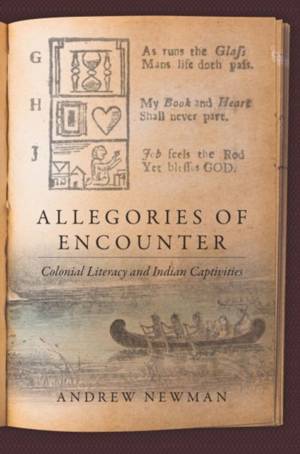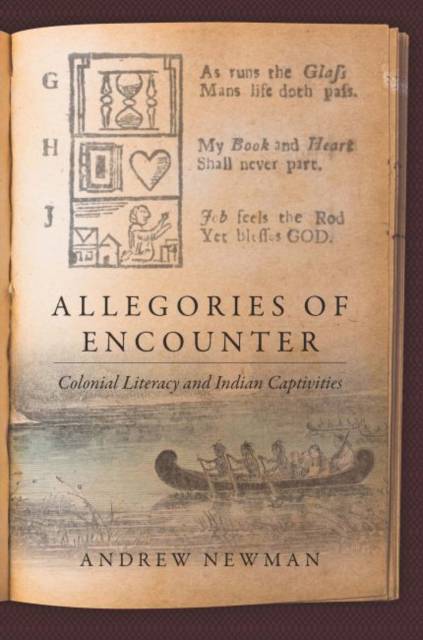
- Afhalen na 1 uur in een winkel met voorraad
- Gratis thuislevering in België vanaf € 30
- Ruim aanbod met 7 miljoen producten
- Afhalen na 1 uur in een winkel met voorraad
- Gratis thuislevering in België vanaf € 30
- Ruim aanbod met 7 miljoen producten
Zoeken
€ 38,45
+ 76 punten
Uitvoering
Omschrijving
Presenting an innovative, interdisciplinary approach to colonial America's best-known literary genre, Andrew Newman analyzes depictions of reading, writing, and recollecting texts in Indian captivity narratives. While histories of literacy and colonialism have emphasized the experiences of Native Americans, as students in missionary schools or as parties to treacherous treaties, captivity narratives reveal what literacy meant to colonists among Indians. Colonial captives treasured the written word in order to distinguish themselves from their Native captors and to affiliate with their distant cultural communities. Their narratives suggest that Indians recognized this value, sometimes with benevolence: repeatedly, they presented colonists with books.
In this way and others, Scriptures, saintly lives, and even Shakespeare were introduced into diverse experiences of colonial captivity. What other scholars have understood more simply as textual parallels, Newman argues instead may reflect lived allegories, the identification of one's own unfolding story with the stories of others. In an authoritative, wide-ranging study that encompasses the foundational New England narratives, accounts of martyrdom and cultural conversion in New France and Mohawk country in the 1600s, and narratives set in Cherokee territory and the Great Lakes region during the late eighteenth century, Newman opens up old tales to fresh, thought-provoking interpretations.
In this way and others, Scriptures, saintly lives, and even Shakespeare were introduced into diverse experiences of colonial captivity. What other scholars have understood more simply as textual parallels, Newman argues instead may reflect lived allegories, the identification of one's own unfolding story with the stories of others. In an authoritative, wide-ranging study that encompasses the foundational New England narratives, accounts of martyrdom and cultural conversion in New France and Mohawk country in the 1600s, and narratives set in Cherokee territory and the Great Lakes region during the late eighteenth century, Newman opens up old tales to fresh, thought-provoking interpretations.
Specificaties
Betrokkenen
- Auteur(s):
- Uitgeverij:
Inhoud
- Aantal bladzijden:
- 236
- Taal:
- Engels
- Reeks:
Eigenschappen
- Productcode (EAN):
- 9781469647647
- Verschijningsdatum:
- 7/01/2019
- Uitvoering:
- Paperback
- Formaat:
- Trade paperback (VS)
- Afmetingen:
- 156 mm x 234 mm
- Gewicht:
- 371 g

Alleen bij Standaard Boekhandel
+ 76 punten op je klantenkaart van Standaard Boekhandel
Beoordelingen
We publiceren alleen reviews die voldoen aan de voorwaarden voor reviews. Bekijk onze voorwaarden voor reviews.











